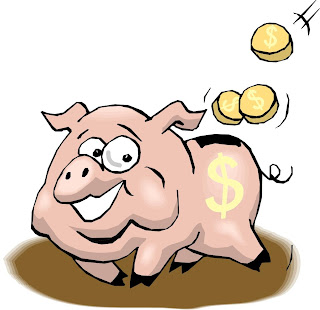
New numbers released indicate that Americans are currently saving, on average, 6.9% of their after tax income. In recent times that's very high, but if you click on the title above you'll discover that in the last 50 years it's merely average. Pay particular notice to the graph and the depths we reached just a few short years ago.


Of course Americans are trying to save more these days. Everything is "save, save, save" even though what we really need is to spend to help the economy pick up. But with the threat lay-offs on the horizon, and the rising cost of college, and living for that matter, it makes more sense to put away a little extra right now.
ReplyDeleteSeveral changes in the economy in the 1960’s and 70’s caused some individuals to spend more than what they earned. They did so by the deregulation of credit and rising home values. Americans trusted that their increasing home value was enough to finance a new car or home. Although a national average of 6.9% saving rate after tax income seems high in comparison to the -2.5% in 2005. This is when Americans were spending more than they were earning in real estate investments; hoping to get a nice profit for the investment. In many circumstances many investor pulled out too late and were left with a home and huge debt from the bank, in addition to the plummeting value of the house. At least now the saving rates are positive and near 7%, but in the scope of the last fifty years this percentage is mere average. Tougher loans and credit will probably elevate the percentage some more until the economy stabilizes and Americans feel more confident about spending. I don't agree with the person above; we cannot spend money we do not have. In other words we cannot spend with loans from the bank. That will only repeat the problem and is not the solution to the problem. The government has to invest money on technological innovation and change the entire education system which is highly inefficient. This change must occur rapidly and we must evolve if we are to survive for long in a competitive environment where as Darwin said only the fittest survive.
ReplyDeleteDaniel F. Diaz
Period 1
It is not all that surprising for me that such a thing would happen given the conditions of today’s economy and the lack of faith. A person can yell out all they want about the economy improving or that it is going to or it has just hit the bottom but no one is going to give up what money they have on a leap of faith. And more than like that money is going to be their retirement. So, very little amount of people will be throwing around money unless they see something worth it. And it comes to little surprise that there was a large dip in the curve because for a while the economy was doing excellent. There is one thing that I would change about the article about the paychecks in a rainy day fund since I think today it would be called their personal retirement fund. Since they can not believe that there is going to be any other money than what they have now.
ReplyDeleteIan Anderson,
4th period